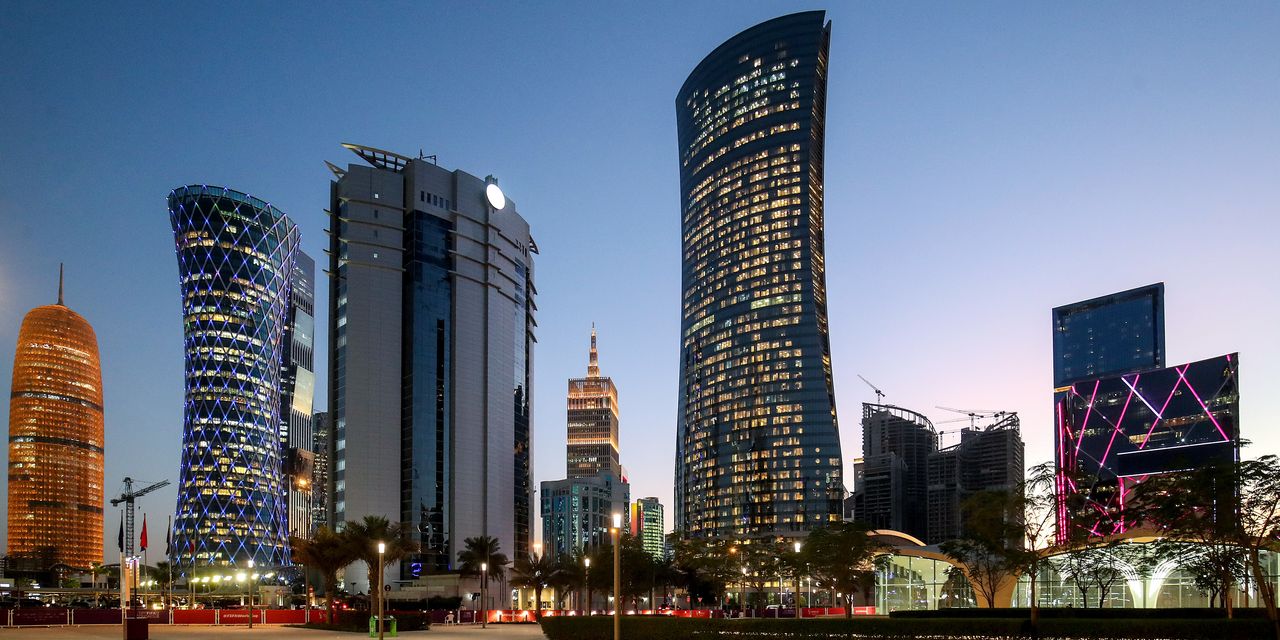The Winner of the World Cup Is Often the Host Nation’s Real Estate Market

[ad_1]
Hosting a FIFA World Cup usually creates a significant upswing in demand for short-term rental accommodation in cities where stadiums are located, leading to dramatic price increases—but the uplift to the sales market unfolds over many years.
The short-term boost to the property market—like the rental upswings Qatar and nearby Dubai are feeling—typically only lasts a few weeks and primarily affects properties located close to the stadiums. The long-term impact of hosting one of the world’s largest sporting events on residential property markets is more complex and difficult to assess. The effects of hosting the soccer tournament often unfold over years and vary widely from country to country and city to city.
Unlike the Olympic Games, which are held in a single city, World Cup games—which are held every four years—are scattered across multiple cities and can span enormous geographic areas.
The current World Cup, hosted by Qatar, is unusually compact, taking place across five cities just a few hours’ drive apart, but the 2018 World Cup in Russia was spread between 11 cities spanning thousands of kilometers. The 2026 World Cup, which will be hosted by the U.S., Mexico and Canada, is set to take place in 16 different cities scattered across the three countries, with up to 3,000 miles between some stadiums.
This makes the impact of hosting a World Cup particularly difficult to catalog. Brokers said that the effects may begin months or even years before the month-long tournament and continue for years in its wake.
“Leading up to the World Cup, there was an increase in demand for properties that suited the hosting of the influx of soccer fans, their family and friends,” said Craig Hutchinson, CEO of Engel & Völkers South Africa. The 2010 World Cup was held across nine cities in South Africa, including Johannesburg, leading to “a lot of tourists who ordinarily wouldn’t have traveled to South Africa experiencing the country for the first time.”
Upgrades to urban infrastructure often made in the run-up to hosting a World Cup tournament can add lasting appeal and value to host cities, and the huge spike in tourism during a World Cup can translate into property sales years down the line.
“Properties that suited conversion into guest houses or Airbnb’s were particularly in demand … especially around the main stadiums,” Mr. Hutchinson said. “There was no evidence of an increase in demand of international property buyers directly after the soccer World Cup, but what we did notice was an increase of international buyers approximately three years after the hosting of the World Cup.”
He attributed this delayed effect to visitors who discovered South Africa during the World Cup returning for subsequent holidays and eventually committing to purchasing properties, particularly in popular tourist and second-home areas.
“The biggest increase in international buyers has been in the Western Cape areas, from the Garden Route through to the winelands and up the West Coast of South Africa, as well as in Mpumalanga, in the region of the Kruger National Park,” he said.
More: World Cup Worthy Estate in Brisbane, Australia, Asks A$15 Million
This meant that while the cities that hosted World Cup games saw increased real estate activity in the short-term, it was areas of the country far away from soccer stadiums that might have benefited from the tournament in the long-term.
“The effect of a well-hosted soccer World Cup is not only short-term gain for the country and its fiscus, it also leads to the long-term gains of raising the country’s destination appeal, which in turn leads to positive demand in the property industry,” Mr. Hutchinson said. “The long-term results are more difficult to measure, … but it is there and in South Africa’s case was positive.”
In Brazil, which hosted the 2014 World Cup, short-term rental prices increased stratospherically during the tournament, which was held across 12 cities. Hotel room prices in Rio de Janeiro, where the final was held, rose by up to 600%, pushing many visitors to rent out apartments or rooms in private homes at unprecedented prices.
The long-term impact was also pronounced in Rio de Janeiro, which also hosted the Olympic Games in 2016. Property prices began to rise steeply in the seaside city two years before the World Cup and had increased by around 30% by the time the tournament began, said Benjamin Cano, CEO of real estate agency RIOException.
More: Qatar Home Sales Sagged Ahead of World Cup
The sharp increase in property prices led to “a good market but a difficult market,” he said. “We reached top prices from 2014 until mid-2016. Then the market almost stopped until 2019. It was really slow because the prices were so high that no one was buying. The Covid situation caused prices to fall to the floor and made the market start moving again.”
But his observation of the wider Brazilian market reflects the diffuse and complex long-term impacts of hosting a World Cup, suggesting that the effect on demand and property prices are more marked in cities that already have plenty to offer international buyers. “I think Sao Paulo also had a collateral effect, but the other places in Brazil didn’t really benefit significantly,” he said. “Rio is Rio. It’s the vitrine of Brazil.”
The current World Cup in Qatar exemplifies the sometimes unexpected ripple effects that hosting the event can have on property markets. While property prices in Qatar rose fractionally in the lead-up to the tournament, it is property owners in neighboring Dubai who are likely to reap most of the benefits. Brokers in Dubai anticipated a surge in sales of luxury properties during and after the World Cup due to increased tourism from soccer fans. Dubai headed Knight Frank’s third-quarter Prime Global Cities Index 2022, with price growth of 88.8% over the year to September 2022 and 29.3% the third quarter 2022 alone.
More: The Qatar World Cup Will Give Dubai’s Luxury Market a Boost—Maybe Its Last for a While
Brokers in North American host cities are sanguine in the run-up to the 2026 World Cup, which will see 60 games played across 11 U.S. cities, as well as 10 games in Toronto and Vancouver, and 10 games in the Mexican cities of Guadalajara, Mexico City and Monterrey. The increased tourism associated with the event is an opportunity to show visitors what host cities have to offer buyers.
“I can’t imagine people buying property strictly for the rental possibilities for a short-term event like the World Cup,” said Andrew Carros, CEO of Engel & Völkers Vancouver. “Vacancy rates and inventory are both already low in Vancouver. However, if someone is already looking for an investment property this could add to the appeal of choosing Vancouver. … We are a city built on lifestyle and anyone who gets to witness the stunning landscape of Vancouver may consider relocating to this part of the world.”
He compared hosting the World Cup to previous high-profile international events held in the Canadian city, including the Winter Olympics.
“We did see many infrastructure improvements, like transportation, which have significantly helped the city grow and expand,” he said. “In this regard, we would suggest the Olympics had a lasting impact on our property market.”
Overall, he anticipated Vancouver’s attraction will continue to lie in the high quality of life it offers residents.
More: Soccer Field, Playground, Recording Studio—This Miami Duplex Penthouse Has Access to It All
“It is our scenic landscape, economic stability and way of life that are the major draw to international purchasers. Any spotlight or globally recognized event inevitably will bring new eyes to the city, but we don’t suspect it will be the driving force on the property market,” he said.
Valerie Post, license partner at Engel & Völkers Boston, said the city consistently attracts new buyers coming for its world-class academic, technology and science institutions, as well as its robust job market, but “a spotlight as bright as the World Cup only further highlights the many advantages of New England living to our global prospects.”
She expected increased interest from investors searching for buy-to-let properties in the run-up to the World Cup, as well as an increase in property sales in its wake.
“We know hosting the 2026 FIFA World Cup will be a tremendous opportunity and we’re thrilled to showcase the lucrative rental market that exists in our region,” she said.
In the long-term, she expects hosting the tournament to result in “new, high-paying jobs that are always good news for housing markets.”
[ad_2]
Source link






